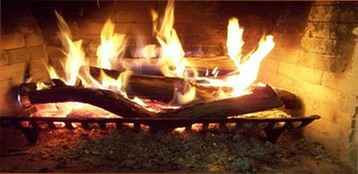
Professional Chimney Sweep Tamworth, Sutton Coldfield, Lichfield, Nuneaton, Birmingham, Solihull & Surrounding Telephone 07407 453630
MASTER SWEEPS
CHIMNEY SWEEP SPECIALIST
07407 453630


 Click Here To Fast Book!
Click Here To Fast Book!


Master Sweeps. 4 The Bodnetts, Plantation Lane, Hopwas, Tamworth, Staffs B78 3AU Tel: 07407 453630
When & How Often Should You Have Your Chimney Swept?
Many households make the mistake of neglecting their chimneys, having them swept only when they start to experience difficulties with their fires. By this time a lot of irreversible damage may already have been caused to their fireplace, stove, chimney flue or liner. And after a lot of money has been wasted on fuels that were not able to burn correctly and produce the heat they were capable of producing.
If these people had called in a chimney sweep sooner they could actually have saved money!
For more information about the sweeping process click here
Some people are a little more savvy and have their chimneys swept at least once a year. However, for some even this may not be enough.
If burning coal a chimney should be swept at least twice a year, once before the burning season commences, usually late summer, and after the burning season has ended, usually spring or early summer.
The reason for sweeping before the burning season is to ensure no birds nests, spiderwebs or any other forms of blockages have been laid in the chimney during the summer months that would impede the correct operation of the fireplace / stove and chimney flue when the fire appliance is again used during the autumn and winter burning period.
The reason for sweeping after the burning season has ended is to remove soot / tar / creosote build up that would otherwise attack and corrode the chimney flue or liner if allowed to remain in-
The reason fireplaces and stoves can smell in hotter periods, such as summer months, is due to the reversal of the chimney operating principle. During cold months the air temperature outside is lower than the air temperature inside your home. As a result, the hot air produced in your home by your fire is naturally drawn (hot air rises) to the cooler outside air and so travels up the chimney. As the warm air leaves the room and goes up the chimney a vacuum if created in the room. Nature abhors a vacuum and so fresh new air is drawn into the room via air vents in the room. The whole cycle is then repeated.
In warmer months the air outside your home can be warmer than the air temperature inside your home and the outside air will want to travel down your chimney and into your home. As the air travels down your chimney it picks up soot and tar / creosote odours and transfers these odours into your home. During warmer periods windows tend to be opened to allow cooler air into the house. The effect of this can be to create a vacuum within the house and so the outside air will travel down the chimney flue and into the house to fill the vacuum created by the opening of doors and windows. Thus bringing the unpleasant chimney smell into your home.
By having your chimney swept the deposits inside your chimney that cause the unpleasant odours are removed and less odours are experienced.
If burning wood on a regular basis, i.e., on a daily basis during colder periods, the frequency of sweeping increases to three times per year. Once before the burning season commences, once during the burning period, i.e. half way through the winter period, and once after the burning season has ended. The reason for the increased frequency of sweeping if wood is used is due to the much greater levels of creosote given off by wood when burnt. The creosote produced by the burning wood attaches itself to the inside of chimneys like treacle to a pancake. Not only do these deposits corrode your chimney (particularly stainless steel liners) they are also highly flammable and the prime cause of chimney fires.
Oil and gas fire appliance users should have their chimneys swept as a minimum at least once a year to remove combustion deposits and other blockages, e.g. spiderwebs etc.
See the table at the top of the page for the frequency of sweeping required according to the fuel used.



To arrange a chimney sweep call me on Tel: 07407 453630
Or leave a message requesting a call back and I will return your call within the hour
Alternatively, you can send me a message by filling in the form opposite and I will respond quickly to your enquiry.
If you are looking for a quote just let me know the approximate location of the property and the type of fire appliance you use, e.g, open fireplace or stove.
I will then provide you with the cost of a sweep.

 EMF Form Builder
EMF Form BuilderChimney sweeping service covering Erdington, Edgbaston, Dorridge, Solihull, Marston Green, Aminbgton, Wilnecote, Fazeley, Knowle, Hockley Heath. Chimney sweeper for Lichfield, Fradley, Alrewas, Burton and surrounding areas.
